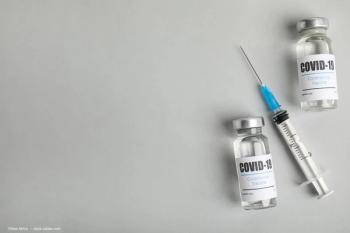
COVID-19: HHS extends public health emergency declaration
The Department of Health and Human Services recently extended the national public health emergency declared for the COVID-19 pandemic, thereby extending payment and regulatory flexibilities. Amid the pandemic, ophthalmologists continue to adapt to practicing in the era of COVID-19.
The Department of Health and Human Services (HHS) recently extended the national public health emergency declared for the COVID-19 pandemic, thereby extending COVID-19 payment and regulatory flexibilities granted during the period.
HHS Secretary Alex Azar renewed the COVID-19 national public health emergency declaration, which came as good news for physicians who were concerned that the loosening of regulations on telehealth would end leaving them unable to properly treat their patients while keeping both parties safe from the risk of infection.
The new declaration will extend the national public health emergency for another 90 days, according to the Public Health Service Act.
According to a news release, HHS has implemented key telehealth payment and coverage flexibilities during the pandemic, including expanded coverage of telehealth services delivered to Medicare beneficiaries in a wider range of locations.
In a statement, Rick Pollack, president and CEO of the American Hospital Association (AHA), said the action “will allow us to continue our efforts to ensure that hospitals and health systems are using every tool available to respond to COVID-19.”
The AHA last month called on Azar to extend the public health emergency.
“The declaration of a public health emergency has given hospitals and health systems and our caregivers the ability to respond in an innovative, timely and decisive manner to the virus,” Pollack said in the statement. “It has been an invaluable tool in the battle against COVID-19 by providing the necessary resources to care for patients and communities, such as expanded use of telemedicine and the ability to provide care in alternative care sites.”
The AHA was a part of a group of 340 organizations that sent a letter to Congressional leaders asking for telehealth flexibilities introduced during the COVID-19 pandemic be made permanent.
Amid the COVID-19 pandemic, physicians across most specialties, including ophthalmology, experienced a marked drop in patient visits as nonessential visits and procedures were curtailed, and patients worried that a medical appointment could lead to a coronavirus infection.
As the pandemic took hold, ophthalmology was hit hard, with some physicians experiencing a drop of about 80 percent in patient visits, according to a survey by The Commonwealth Fund.
In another survey by Strata Decision of more than 200 hospitals in 40 states, patient encounters for cataracts were down 97 percent in March and April, while encounters for glaucoma were down 88 percent.
Even as cases of coronavirus surges in the South and West, ophthalmologists are prepared, having developed methods to safely practice amid COVID-19.
Specialists have led the charge. The American Society of Retina Specialists (ASRS) COVID-19 Survey Series noted what most retina specialists already surmised: The pandemic was wreaking havoc on clinical practices and perhaps patients’ ocular well-being.
“Retina practices throughout the nation began to implement strategies to protect patients, staff, and doctors through enhanced sanitation, office decongestion, and social distancing,” said David Williams, MD, MBA, a past president of ASRS and in private practice in Minneapolis.
Newsletter
Don’t miss out—get Ophthalmology Times updates on the latest clinical advancements and expert interviews, straight to your inbox.





























